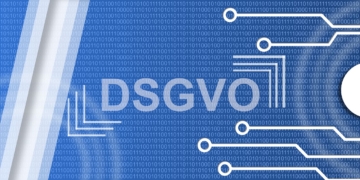Building a competent and motivated team is crucial to the success of a start-up. However, founders must observe a variety of employment law regulations in order to avoid costly mistakes and legal risks. This article highlights the most important aspects of employment law that start-ups need to consider when building a team.
Basics of employment law for startups
German employment law is complex and comprises numerous laws, including the German Civil Code (BGB), the Dismissal Protection Act (KSchG), the Part-Time and Fixed-Term Employment Act (TzBfG), the Working Hours Act (ArbZG) and the Federal Leave Act (BUrlG). It is important for start-ups to understand the basic principles and create legally compliant structures from the outset.
Types of employment relationships
- Permanent employment
Permanent full-time employment is the classic form of employment relationship. It offers employees the highest level of protection, in particular through the Dismissal Protection Act, which applies if the company has more than 10 employees and after a period of employment of more than six months.
- Fixed-term employment
Fixed-term employment contracts can be flexible for start-ups, but are subject to strict legal regulations:
-
- Without a material reason, a fixed term is only permitted for a period of up to two years in accordance with Section 14 (2) TzBfG.
- Fixed-term contracts (e.g. for project work) are also possible beyond this, but must be well justified.
- Part-time employment
In principle, part-time employees have the same rights as full-time employees. According to Section 8 TzBfG, employees are entitled to reduce their working hours under certain conditions.
- Mini-jobs
Mini-jobs can be a flexible option for start-ups, but are subject to special social security regulations.
- Freelancers and independent contractors
Employing freelancers can be attractive for start-ups, but carries the risk of bogus self-employment. It is important to observe clear demarcation criteria and to structure the collaboration carefully.
Drafting employment contracts
A well-formulated employment contract is the basis for a clear and legally secure employment relationship. The following points should be taken into account:
- Written form requirement: Although employment contracts are generally form-free, the written form is strongly recommended.
- Material contractual terms: According to the Nachweisgesetz (NachwG), certain material contractual terms must be set out in writing, including:
- Name and address of the contracting parties
- Start of the employment relationship
- For fixed-term employment relationships: foreseeable duration
- Place of work
- Description of the activity
- Amount and composition of remuneration
- Agreed working hours
- Duration of annual leave
- Notice periods
- Probationary period: A probationary period of a maximum of six months can be agreed, during which a notice period of two weeks applies.
- Flexible working time models: Flexible working time models can be particularly attractive for start-ups. However, these must be in line with the Working Hours Act.
- Non-compete and confidentiality clauses: Non-disclosure clauses can be agreed to protect business secrets. Post-contractual non-compete clauses are possible, but must be adequately remunerated.
Employee data protection
The protection of employees’ personal data is an important issue that startups need to consider from the outset:
- Legal basis: The processing of employee data must be based on a legal basis, usually Section 26 BDSG or Art. 6 GDPR.
- Duty to inform: Employees must be informed about the processing of their data.
- Technical and organizational measures: Appropriate protective measures must be implemented for employee data.
Occupational health and safety
Even small companies must comply with occupational health and safety regulations:
- Risk assessment: Employers must carry out an assessment of the hazards associated with the work.
- Instruction: Employees must be regularly instructed on health and safety at work.
- Workplace Ordinance: The requirements for the design of workplaces must be complied with.
Special challenges for start-ups
- Rapid growth: In the event of rapid company growth, labor law thresholds (e.g. for protection against dismissal or the formation of a works council) must be observed.
- International teams: When employing international staff, issues relating to residence and work permit law must be taken into account.
- Equity participations: Employee participation programs can be motivating, but must be carefully designed to avoid tax and employment law pitfalls.
Practical tips for start-ups
- Early planning: Develop an HR strategy that is in line with your business plan and legal requirements.
- Standardization: Develop standard employment contracts and HR policies that are adapted to your company.
- Documentation: Keep careful personnel files and document important decisions and discussions.
- Maintain flexibility: Use flexible employment models, but be aware of the legal limits.
- Further training: Invest in further training for your managers in employment law topics.
- External expertise: Consult a specialist lawyer for employment law at an early stage for complex issues.
Observing employment law regulations may initially seem like an additional burden for start-ups. However, a proactive and informed approach to employment law can help to build a motivated and efficient team and minimize legal risks. By creating fair and transparent working conditions, startups can not only fulfill their legal obligations, but also position themselves as attractive employers.













































